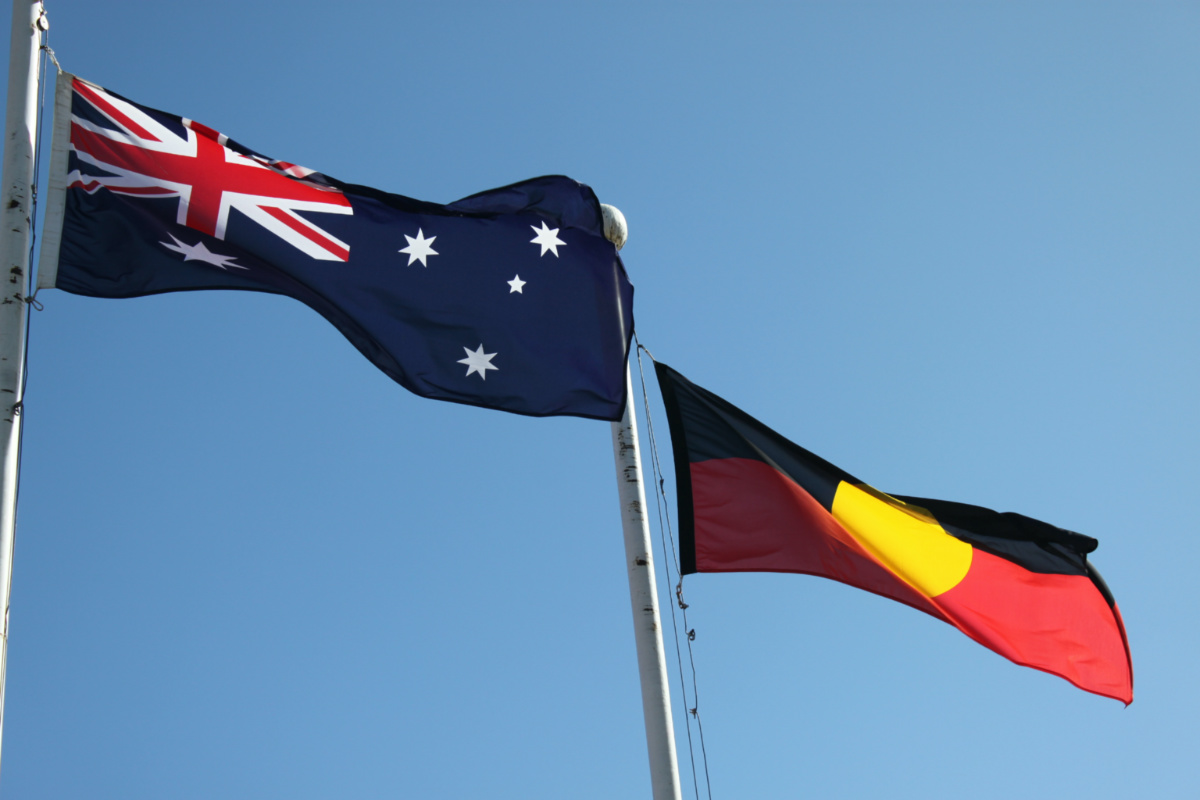
DAVID ADAMS looks at how Christian churches in Australia are engaging with the upcoming referendum on an Aboriginal and Torres Strait Islander Voice to Parliament …
Geelong, Australia
It’s been a long road to Australia’s impending referendum on the Aboriginal and Torres Strait Islander Voice to Parliament for Bianca Manning.
Manning, Aboriginal and Torres Strait Islander justice co-ordinator for Christian advocacy group Common Grace, says the organisation first started consulting with Aboriginal and Torres Strait Island leaders about the proposed referendum last year.
“It’s been a very exhausting…year…”
Manning, a Gomeroi woman who is based in south-east Queensland, believes while most Aboriginal and Torres Strait Islander Christians support the Voice, they do hold a range of views. Yet, she says that in the group’s discussions with leaders, they found much common ground among them.
“Ultimately we were really just hearing that our mob, we want the same things – we want the gap closed, we want tangible change in our communities, we want our kids to be safe with their families not locked up in prison, we want country to be protected, we want the shared history of our nation to be told and for healing to come.”

The Australian and Aboriginal flags. PICTURE: Maddie Cariss/Shutterstock
In less than two weeks – on 14th October – Australians will go to the polls to vote on whether to change the Australian Constitution and create a new body called the Aboriginal and Torres Strait Islander Voice which “may make representations to the Parliament and the Executive Committee of the Commonwealth on matters relating to Aboriginal and Torres Strait Islander peoples”.
The idea of a First Nations Voice enshrined in the Australian Constitution was among reforms called for in the landmark Indigenous document, the Uluru Statement from the Heart, released in 2017 by delegates to the First Nations National Constitutional Convention.
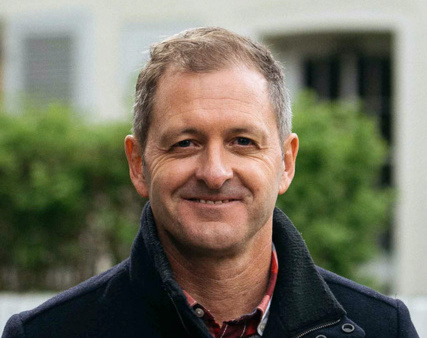
Simon Smart, executive director of the Centre for Public Christianity. PICTURE: Courtesy of CPX
“Even ones that are neutral – in that they’re not coming out and making a very strong stance for a yes or a no – are encouraging their people to be really engaged with the issue.”
– Simon Smart, executive director of the Centre for Public Christianity
Prime Minister Anthony Albanese, who had committeed to implementing the Uluru Statement following his election in 2022, unveiled the referendum question concerning the Aboriginal and Torres Strait Islander Voice to Parliament back in March and then announced the date for the referendum on 30th August.
As the debate over the Voice and the referendum has gained pace, church denominations across Australia have issued statements expressing a range of views on the issue as have some Christian organisations and ecumenical bodies such as the National Council of Churches in Australia.
Prominent Christian figures have also made sometimes impassioned appeals including, in the ‘yes’ camp, everyone from Sydney Anglican rector Rev Dr Michael Jensen and Melbourne-based Baptist minister and social campaigner Rev Tim Costello to, in the ‘no camp’, Dr Stephen Chavura, senior lecturer in history at Sydney’s Campion College, and author and broadcaster Kel Richards.
Simon Smart, executive director at the Sydney-based thinktank, the Centre for Public Christianity (CPX), says while some churches have been “strongly in favour” of the proposed Voice – when interviewed in mid-September he said these included the Anglican Church, the National Council of Churches, Uniting Church, Salvation Army and Quakers, others – including the Catholic Church and Lutheran Church as well as organisations like The Gospel Coalition – have adopted a “more neutral” response.
“They’re all offering pretty strong statements, though, encouraging people to be informed of the issues and take seriously the call to recognise the challenges of the Aboriginal and Torres Strait Islander people and work towards a more just and equitable society,” he says.
“And they’re all providing lots of resources to help people make theological links between their faith and the question of justice and people suffering past wrongs and hurts. Even ones that are neutral – in that they’re not coming out and making a very strong stance for a ‘yes’ or a ‘no’ – are encouraging their people to be really engaged with the issue.”
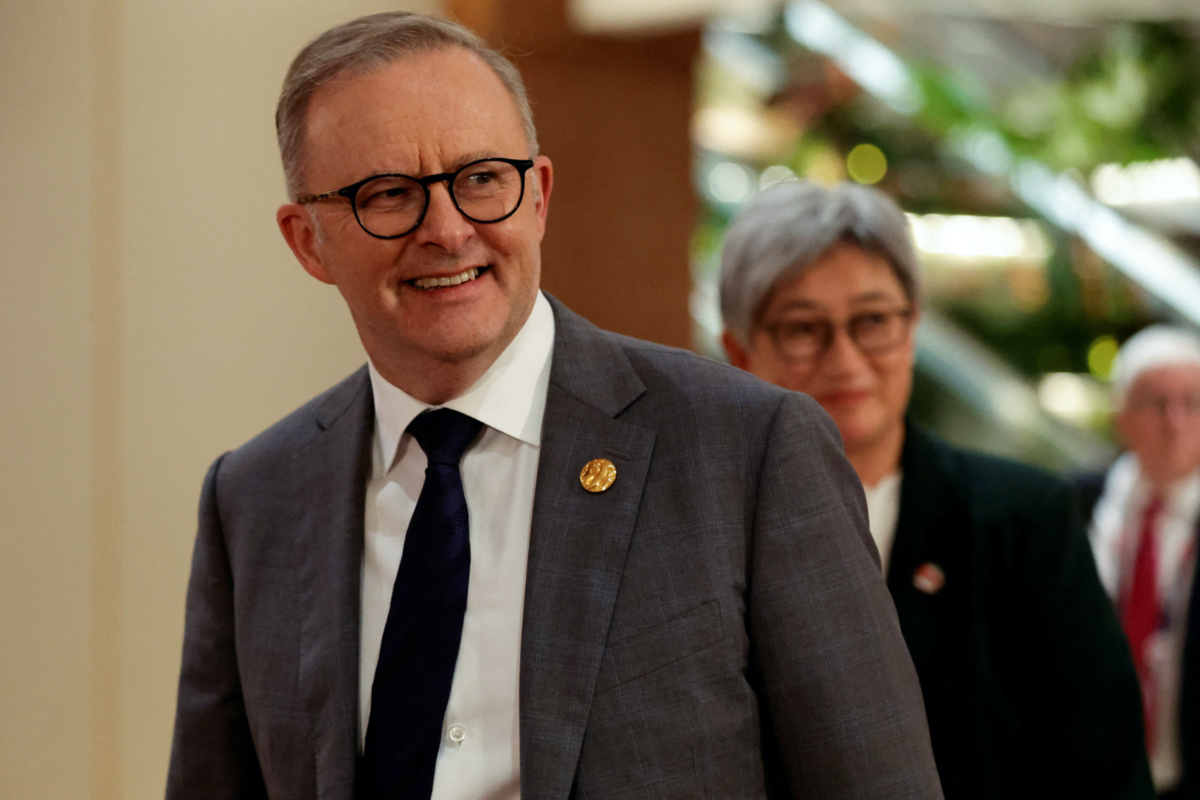
Australian Prime Minister Anthony Albanese along with the Australian Foreign Minister Penny Wong smile during the 43rd ASEAN Summit in Jakarta, Indonesia, on 6th September, 2023. The Prime Minister announced the date of Australia’s referendum on the Indigenous Voice on 30th August. PICTURE: Reuters/Willy Kurniawan/Pool/File Photo
Smart says the fact some churches have taken a more neutral stance “isn’t surprising at one level”.
“There are clearly arguments on both sides of the debate that are complex and churches would recognise within their congregations that it would be natural to have a range of opinions there. And so they would be trying to speak in a way that respects that and respects the fact that there’s complexity even for people who agree with the statements of the need for attention and care, that you might land on a different side of this debate,” he explains.
“What should not be in doubt is that Christian insistence that followers of Jesus do engage in both symbolic but, perhaps more importantly, practical ways of bringing about healing and justice and care for people who are vulnerable and disadvantaged. That’s uncontroversial – I guess my hope would be that churches are urging their people to be well informed, engaged, working towards justice, displaying mercy and generosity, and making their decisions on important public matters with that motivation. Now different people will have different responses to complicated political decisions but, for the Christian, that foundation is an essential part of living out their faith in the world.”
Noting that Christians are generally more engaged with civic and political matters than the average Australian, Mark McCrindle, principal at Sydney-based McCrindle Research, says the fact denominations are putting out statements illustrates Christians do still look to their leaders for guidance when engaging with such issues.
“Christians do still look to their Christian leaders for input and direction on things. Which is quite interesting because we hear that Christianity is on the wane and that even denominationalism is on the wane. But Christians are quite engaged with not only the political input but [with] what other Christians and Christians of influence or leadership are saying.”
McCrindle suggests that the fact some denominations haven’t advocated for a ‘yes’ or ‘no’ vote may mean they are “discharging their spiritual or religious obligations but not stepping into institutional power input”.
“I think if we look in the recent past, Christendom in Australia had a bit of civic influence and had some connections at state level and was listened to and so probably used that a little bit more as a bloc. But in the modern era, church denominations and church leaders recognise the diversity of their people politically, of their congregations, but also the fact that people aren’t denominationally wedded – there is a lot of this dynamism or movement – and therefore they don’t want to come down hard and fast with a particular stance.”
When it comes to voting day (and voting in the referendum is compulsory for Australians), McCrindle expects Christians to largely vote in line with how their electorates vote.
“Christians and their churches tend to be connected and part of the communities in which they sit…We will find that those in the more conservative electorates, populated with more conservative churches, will be on the ‘no’ side. I think it will be a bit more mixed in some of those inner city electorates…a little bit like some of those churches they attend will be.”
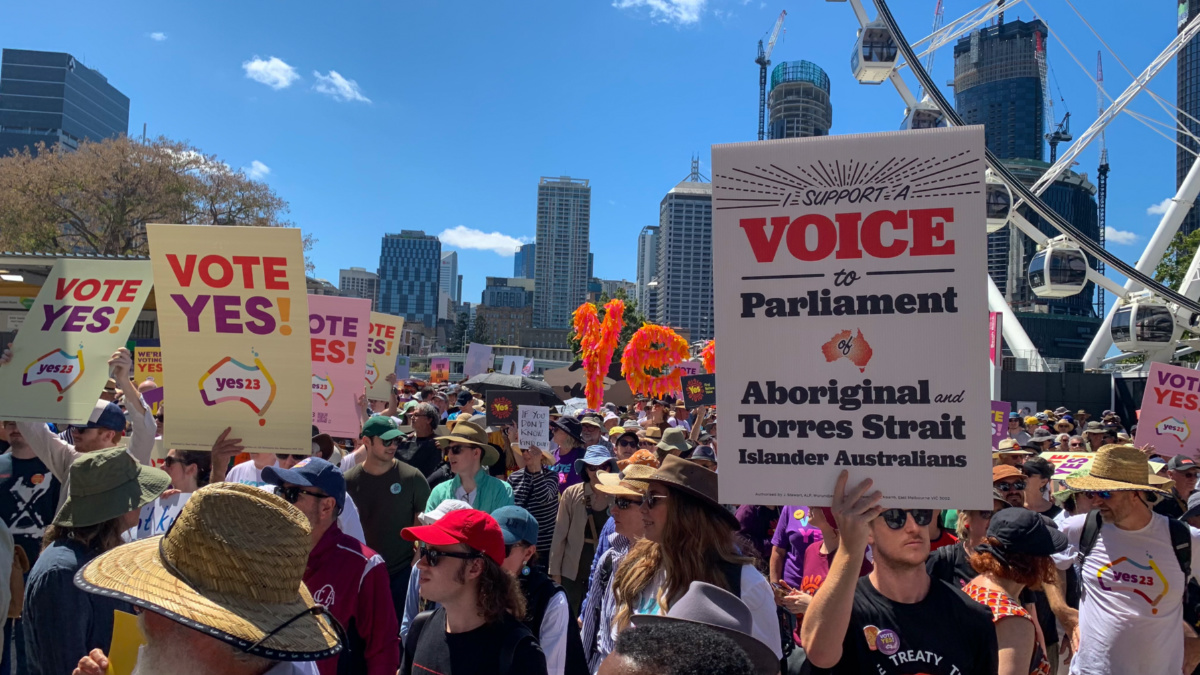
People attend a ‘Vote Yes’ rally in Brisbane, Australia, on 17th September, 2023. PICTURE: Stephan Ridgway (licensed under CC BY 2.0)
The Australian Catholic Bishops’ Conference is among denominational groups which have adopted a more neutral stance in statements (although at least two Catholic bishops – Bishop Vincent Long of Parramatta and Bishop Charles Gauci of Darwin – have come out in favour of a ‘yes vote). In its 2023-24 Social Justice Statement – issued before a date for a referendum on the Voice was announced, the ACBC said it “will not tell Catholics or their fellow Australians how to vote in the referendum”, adding that “instead, we ask all Australians to seek out information on the referendum proposal, especially from Aboriginal and Torres Strait Islander peoples”. The National Aboriginal and Torres Strait Islander Catholic Council advocated for a ‘yes’ vote in the same document – it’s among numerous Catholic organisations which have done so.
In an article published by Australian Jesuit publication Eureka Street last month, John Warhurst, emeritus professor of political science at Australian National University and prominent Catholic commentator, wrote that the position of the Catholic Church was “curious” given the “overwhelming support” for the ‘Yes’ vote from an “extraordinary range of Catholic agencies, religious orders and congregations, and voluntary Catholic organisations” which also includes National Aboriginal and Torres Strait Islander Catholic Council.
Warhurst suggests three possible reasons for the stance – that they have chosen not to become involved in what they consider to be a ‘political issue’; that the bishops may “reflect the divided opinion of the general community”; and, the bishops may distinguish between support for the Uluru Statement from the Heart and support for a ‘Yes’ vote.
Speaking to Sight, Warhurst notes the Catholic Church was “overwhelmingly supportive” of the 1967 referendum (this recognised Aboriginal and Torres Strait Islander people as part of the Australian population and gave the Federal Government the power to make laws for them) and suggests that, while it was perhaps more of a “clear-cut issue” than the Voice to Parliament, he does think that, due to a range of reasons, the Catholic bishops have become more conservative in the years since.
“I think also they’ve become more risk averse,” says Warhurst. “I think there are big divisions among them and they want to try and present a unified front and the only way to do that is to keep out of contentious issues like this.”
We rely on our readers to fund Sight's work - become a financial supporter today!
For more information, head to our Subscriber's page.
The Anglican Church, meanwhile, has issued several statements in support of the ‘Yes’ vote and in April this year, the Standing Committee of the General Synod of the Anglican Church of Australia affirmed a 2017 statement in which it had supported the recommendation “for a constitutionally-entrenched First Nations’ Voice to the Commonwealth Parliament.”
Bishop Mark Short, of the Diocese of Canberra and Goulburn, who is supporting the ‘yes’ vote, says, when asked why he believed churches should speak out on the issue, that “this is an issue of significance for our Indigenous brothers and sisters.”
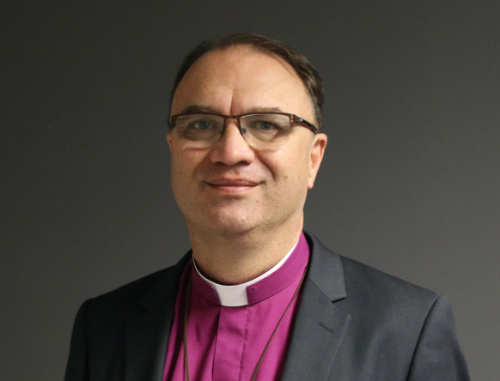
Anglican Bishop Mark Short
“The Anglican Church and other Christian churches in Australia have a long history of working with Aboriginal and Torres Strait Islander people and indeed a greater percentage of Aboriginal and Torres Strait Islander people identify as Christians than do the general population so because it’s of interest to them, it should be of interest to all Australian Christians.”
Bishop Short says it’s important churches “at least engage with the debate” in “helping individual Christians exercise their democratic responsibilities”. He adds that, as a Christian leader, he believes he has a responsibility to put forward a view on a matter.
“I feel that I have a responsibility to set out what I believe to be consistent with the teaching of Scripture while at the same time recognising that other Christians will, in good conscience, perhaps come to a different conclusion,” he says.
“One of the things I want the church to model is the understanding that difference and even disagreement isn’t the same as division. I fear sometimes that the term division can be used as a way of avoiding really significant but potentially important debates. If we only discuss issues where we have total agreement with each other, it actually makes life really boring and it means some really significant issues of justice end up being overlooked.”
We rely on our readers to fund Sight's work - become a financial supporter today!
For more information, head to our Subscriber's page.
While he says he has no problems with the debate over the Voice being politicised – “in the end it is about politics, how we order our common life and make our decisions together”, Bishop Short says he was a “bit disappointed that it’s become partisan”.
“That’s one significant difference from 1967. In 1967 you had all the major political parties on one side of the debate – that’s not the case this time around…I do think it means that the debate over the Voice has become intertwined with other issues and with people’s sense of partisan identity in ways that hasn’t always been helpful for addressing the key issue at hand.”
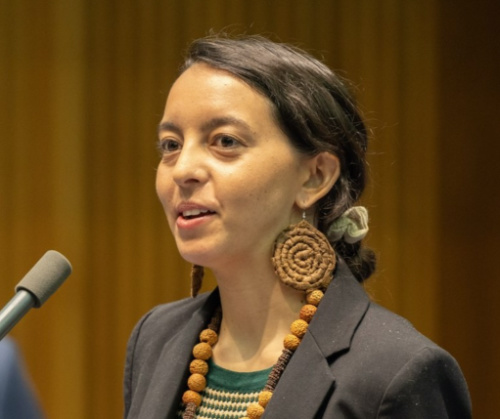
Bianca Manning. PICTURE: Courtesy of Bianca Manning
Whatever the outcome on 14th October, Manning believes that, while the conversations around the referendum have exposed some of the “undealt with conversations in our country that often, unfortunately, still includes a lot of racism or lack of understanding”, they have also strengthened relationships between Christian churches and Indigenous Australians.
“I think that it’s kind of forced people to think about ‘Where do I stand? What do I believe? How am I going to see this invitation of relationship with my Aboriginal and Torres Strait Islander brothers and sisters?’ Yeah, it’s kind of pushed that journey along a bit quicker I think.”
Manning says that for all Christians, days in the lead-up to the vote are the “perfect opportunity to lean into prayer”.
“Especially prayer for that protection over Aboriginal and Torres Strait Islander people at this time because the conversation was messy and tough. We want that safety and protection and God’s comfort and love to be covering our Indigenous people at this time.”






